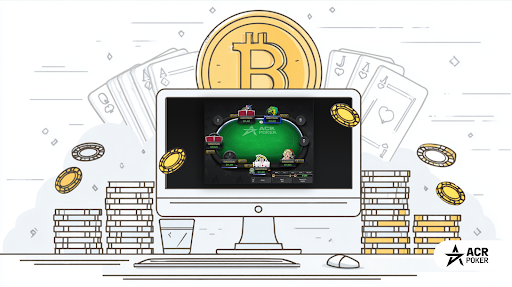Finding entertainment at a casino—whether online or in person—can be a fun diversion, but knowing where to draw the line is essential. The rise of digital gambling platforms and expanded casino access across the USA have made responsible gaming a prominent conversation. Crafting a personal gambling policy isn’t just prudent; it’s a proactive step towards ensuring play never crosses into problem territory. By outlining your own rules for casino use, you set yourself up for enjoyment without risk to your finances, relationships, or wellbeing.
Understanding Responsible Gambling: Setting the Foundation
Responsible gambling means making informed decisions about when, where, and how you gamble—always within limits that safeguard your finances and mental health. Recent reports from the National Council on Problem Gambling highlight that a considerable percentage of U.S. adults participate in gambling annually, yet only a fraction actively manage their boundaries.
Recognizing Healthy vs. Risky Gambling Behavior
While most players engage without harm, others find it hard to stop. Key indicators of risky gambling include:
- Chasing losses after a bad session
- Betting more than you can afford
- Hiding gambling habits from loved ones
Several states mandate responsible gaming resources in all licensed casinos. But individual responsibility remains a critical pillar. Establishing a clear, self-driven policy is the surest way to keep gaming fun and low-risk.
“Responsible gambling policies are primarily personal contracts. Setting your own boundaries is more impactful than any regulation because it taps into your unique motivations and vulnerabilities.”
— Dr. Sylvia Cohn, addiction psychologist

The Case for Writing Your Own Casino Use Policy
Beyond compliance and casino reminders, a personal policy explicitly lays out how you’ll enjoy casino USA platforms without overstepping. Such a policy is even more relevant given the ease of 24/7 access with mobile and online casinos.
Real-World Scenarios: Why Most Players Benefit
- Casual players often underestimate how quickly sessions or bets add up.
- Frequent visitors to a local or online casino may gradually raise their spend without noticing.
- Bonus offers and rewards programs can tempt anyone to play past their comfort zone.
By proactively defining rules, you create a framework to refer to, especially in the heat of the moment.
Key Elements of a Responsible Casino Use Policy
Every individual’s risk factors and entertainment budgets vary. Still, there are essential elements every strong responsible gambling policy should include:
1. Budgeting and Financial Controls
Start by calculating what you can truly afford to lose per session, week, or month. Treat this like other discretionary entertainment—never as potential income.
- Set a strict deposit or spending limit per period.
- Use prepaid cards or separate accounts to avoid impulsive overspending.
- Consider software tools or casino account features that allow self-imposed caps.
2. Time Management
Plan how much time you will spend on casino activities, on both a per-session and weekly basis.
- Schedule casino sessions like social activities rather than spontaneous occurrences.
- Use alarms, timers, or casino platform tools to enforce session limits.
- Prioritize other hobbies and obligations first.
3. Self-Assessment and Emotional Check-Ins
Be honest: are you gambling for fun or to escape stress? Regularly assess your motivations. If emotions like frustration, sadness, or desperation start to drive your play, it’s time to take a break.
- Maintain a gambling journal of sessions, wins/losses, and spurred feelings.
- Talk with friends or family about your casino experiences.
4. Clear Boundaries on Game Choices
Some casino games have higher risk potential, especially those with rapid cycles (slots, instant games).
- If needed, decide ahead of time which games or types of bets you’ll avoid.
- Steer clear of doubling down strategies when frustrated.
5. Knowing When to Walk Away
Define criteria that signal you’re done for the session—such as after hitting a predetermined loss threshold or win goal.
- Stick to exit rules, even if you feel tempted to continue.
- Avoid gambling as a response to big losses (“chasing losses”).
Writing and Formalizing Your Personal Gambling Policy
Moving from intention to written policy dramatically boosts your follow-through, according to behavioral economics research. A written document is tangible, reviewable, and easier to adjust as your circumstances change.
Drafting Your Policy: A Step-by-Step Guide
- Clarify Your Goals: Are you gambling purely for social fun? Looking for periodic excitement? Note your motivations.
- Record Your Limits: Clearly state maximum spend and time limits per session and month.
- Include Accountability Measures: Will you check in weekly with a friend, or use casino self-exclusion if you slip up?
- Set Review Dates: Revisit your policy every three months or after major life events.
Policy Example Snippet
“I will only play at licensed Casino USA operators. My monthly gambling budget is $100. I will play Friday evenings for no more than two hours. If I lose my budget before the month ends, I will not deposit until the next month. If I feel tempted to exceed my limits, I will speak with my accountability partner or use the casino’s time-out tool.”
Making Your Policy Work: Real-World Tips
- Keep a printed or digital copy of your policy accessible when playing.
- Tie breaks or limits to external triggers—such as ending a session after a meal or before a planned outing.
- Use robust passwords or two-factor authentication to prevent impulsive late-night logins.
Leveraging Tools and Support from Casino USA Platforms
Modern U.S. casinos—especially regulated online operators—now offer extensive responsible gaming features driven by state guidelines and industry best practices.
Platform-Provided Safeguards
- Deposit/Loss/Time Limits: Set and manage these via your casino account dashboard.
- Self-Exclusion Programs: Temporarily or permanently block yourself from casino access in case of difficulty sticking to your policy.
- Reality Checks: Recurring pop-ups reminding you how long you’ve played and what you’ve spent.
Collaborating with Support Services
If you ever feel your policy is not enough, reach out to problem gambling helplines, counselors, or peer recovery groups. Many services—such as the National Council on Problem Gambling’s hotline—offer confidential and judgment-free support.
“A well-crafted personal gambling policy, supported by casino tools and accountability partners, turns gaming into a sustainable, enjoyable hobby rather than a source of stress.”
Conclusion: Owning Your Casino Experience
Crafting your own responsible policy for using a casino USA puts you in control of your experience. By proactively setting spending, time, and behavioral boundaries, you can enjoy gaming as intended—pure entertainment—without risking financial or emotional harm. Review and update your policy as needed, and don’t hesitate to use all available support resources. Put your plan in writing, share it with someone you trust, and let self-awareness be your best safeguard.
FAQs
What should I include in my personal casino use policy?
Your policy should address how much money and time you’re willing to spend, which games or activities you’ll participate in, and strategies for accountability if you start to veer off track.
How do casino platforms help me stay within my limits?
Most legal US casinos offer account tools for deposit, loss, and time limits, as well as self-exclusion features and reality check pop-ups to help you stay within your boundaries.
Is it better to set session limits, monthly limits, or both?
A combination typically works best, as session limits prevent impulse extensions and monthly caps stop cumulative excesses. Both help you track overall behavior and catch drift early.
What if I find it hard to stick to my self-imposed limits?
If personal boundaries aren’t enough, leverage casino-provided exclusion tools or reach out to professional support groups. Speaking with someone you trust about your goals adds another layer of accountability.
Can a written personal policy actually change my behavior?
Yes—research shows that intentions documented in writing are more likely to be followed, especially if reviewed regularly and shared with an accountability partner.
Are there warning signs I should look for beyond overspending?
Yes. Emotional signals like irritability when not gambling, hiding activity, or using gambling to escape problems are all red flags that mean it’s time to review your policy and seek help if needed.














Leave a comment